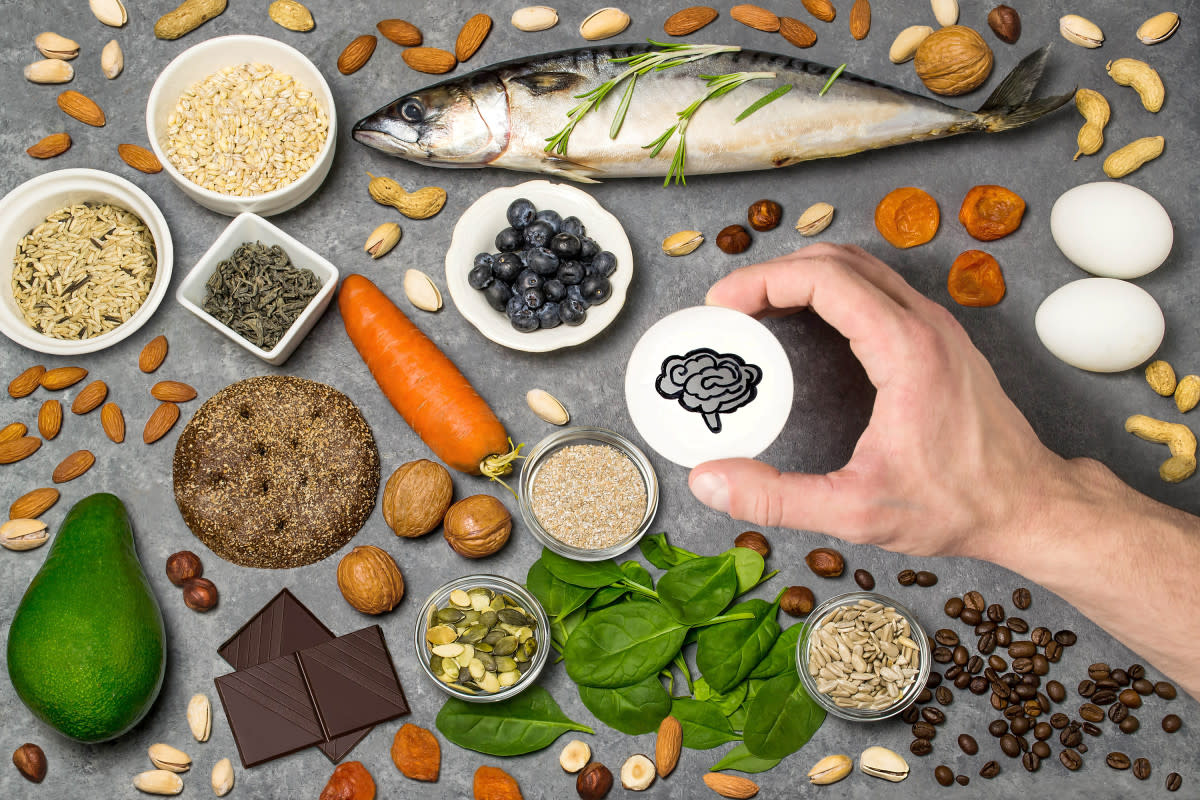In the ongoing journey towards maintaining cognitive vitality and mitigating the risk of dementia, the focus often gravitates towards complex dietary regimens and intricate lifestyle adjustments. While these comprehensive approaches are undoubtedly valuable, there’s a quiet power in simplicity and consistency. For me, one unassuming snack has emerged as a steadfast ally in this proactive endeavor – a readily available, easy-to-prepare combination that I’ve made a near-daily ritual. This isn’t a groundbreaking discovery or an exotic superfood concoction, but rather a harmonious pairing of ingredients, each with compelling evidence supporting its neuroprotective potential.
This daily snack has become more than just a way to bridge the gap between meals; it’s a mindful moment dedicated to nourishing my brain, a small but consistent act of self-care aimed at long-term cognitive well-being. It’s a testament to the idea that sometimes, the most effective strategies are those that seamlessly integrate into our daily routines, becoming a natural and enjoyable part of our lives.
The Dynamic Duo: Unveiling the Powerhouse Ingredients
This simple yet potent snack centers around two key ingredients, each boasting a wealth of brain-boosting properties:
- A Handful of Walnuts: These brain-shaped nuts are more than just visually suggestive. They are nutritional powerhouses, rich in a unique combination of elements that make them exceptional for cognitive health. Walnuts are an excellent source of healthy fats, including omega-3 alpha-linolenic acid (ALA), a plant-based omega-3 fatty acid that the body can convert (albeit in smaller amounts) to the crucial DHA and EPA. They are also packed with antioxidants, including polyphenols, and vitamin E, all of which help protect brain cells from oxidative stress and inflammation. Studies have consistently linked walnut consumption to improved cognitive function, including memory, attention, and processing speed, and some research suggests a potential role in reducing the risk of age-related cognitive decline.
- A Small Square of Dark Chocolate (70% Cocoa or Higher): This isn’t about indulging in sugary milk chocolate. High-quality dark chocolate, with its rich cocoa content, is a treasure trove of beneficial compounds, particularly flavanols. These potent antioxidants have been shown to improve blood flow to the brain, which is essential for delivering oxygen and nutrients necessary for optimal cognitive function. Flavanols may also protect brain cells from damage and promote the growth of new blood vessels in the brain. Furthermore, dark chocolate has been linked to improvements in memory, attention, and processing speed. The higher the cocoa content, the greater the concentration of these beneficial flavanols.
The Simplicity of the Ritual: Making it a Daily Habit
The beauty of this snack lies in its ease of preparation and integration into even the busiest of days. My routine is simple: a small handful (about a quarter cup) of raw, unsalted walnuts paired with a small square (about an ounce) of dark chocolate with a cocoa content of 70% or higher. I often enjoy this mid-afternoon or as a post-dinner treat. There’s no complicated preparation involved, making it a sustainable and effortless way to consistently nourish my brain.
The Synergistic Benefits: How This Snack May Aid Dementia Prevention
While each component offers individual cognitive benefits, their combination may offer synergistic effects in the fight against dementia:
- Antioxidant Powerhouse: Both walnuts and dark chocolate are rich in different types of antioxidants, providing a broader spectrum of protection against oxidative stress, a key contributor to neurodegenerative diseases.
- Supporting Blood Flow: Dark chocolate’s flavanols contribute to healthy blood flow to the brain, while the healthy fats in walnuts also support vascular health, ensuring the brain receives adequate nourishment.
- Anti-Inflammatory Action: Both walnuts and the compounds in dark chocolate possess anti-inflammatory properties, which may help protect brain cells from chronic inflammation, another factor implicated in dementia.
- Providing Essential Fats: Walnuts offer valuable omega-3 fatty acids, while the healthy fats in both walnuts and dark chocolate contribute to overall brain cell health and function.
Important Considerations and Disclaimer:
It’s crucial to remember that this simple snack is not a guaranteed preventative measure for dementia, and research in this area is ongoing. Dementia is a complex condition with multiple risk factors, including genetics and lifestyle. This snack should be considered one component of a broader, brain-healthy lifestyle that includes a balanced diet, regular physical activity, mental stimulation, and stress management.
Furthermore, moderation is key. While both walnuts and dark chocolate offer health benefits, they are also calorie-dense. A small handful of walnuts and a small square of dark chocolate are sufficient to reap the potential cognitive rewards without excessive calorie intake. Choose raw, unsalted walnuts and high-quality dark chocolate with minimal added sugar for the greatest benefit.
My Personal Commitment: A Small Act with Long-Term Intent
This daily snack of walnuts and dark chocolate has become more than just a habit; it’s a tangible way for me to actively participate in nurturing my cognitive health. It’s a simple, enjoyable ritual that aligns with my broader commitment to a brain-healthy lifestyle. While the future of cognitive aging is complex and individual, this small, consistent act provides me with a sense of empowerment and a delicious way to invest in a sharper, more resilient mind for years to come.
